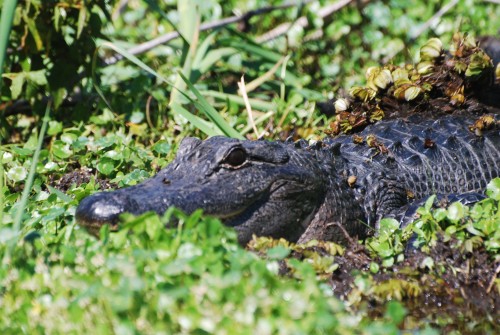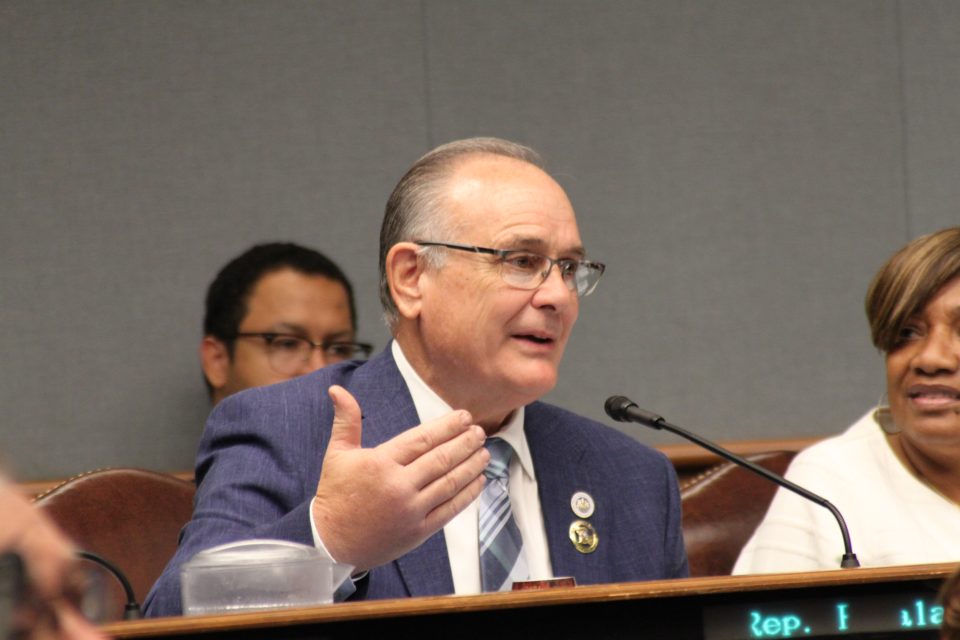
Houma invaded by Hollywood movie shoot
August 30, 2012Labor Day intention still holds meaning
August 30, 2012So you think you can be an alligator catcher?
No, this is not a new reality television show coming to south Louisiana and when it comes to alligator harvesting in Louisiana, the reality is a very real increase in the number of alligator violations.
“There is too much ‘reality’ television and that’s not really reality,” said Louisiana Department of Wildlife and Fisheries enforcement Capt. Chuck Comeaux of LDWF’s Thibodaux office. “Alligator hunting is being portrayed as a sport that you can just go out there and just do. You need tags and the proper licenses to take gators. There are laws for processing, transporting and catching alligators. There are lots of regulations. These shows make it look like you can just go out there and kill gators.”
Since 2009, alligator violations have been steadily increasing throughout the state, jumping from just 69 violations in 2009 and 2010 to 98 this year alone. St. Mary, Lafourche and Terrebonne parishes are among the parishes with the most violations this year, joining St. Martin, Assumption, St. James and St. John as the biggest offenders of alligator harvesting laws. According to LDWF violation statistics, enforcement division agents have issued almost half of this year’s violations in these seven parishes.
“The increase of alligator citations is of concern and the department is doing their best to catch these violators,” said Col. Winton Vidrine, head of the LDWF Enforcement Division in a printed statement. “In some of our cases, the subjects have admitted to watching a reality TV show and then wanting to replicate what they watched. While these shows offer a high level of entertainment, they do not offer a lot of information on how to legally harvest an alligator.”
Most of the violations stem from possessing an alligator during a closed season, failing to possess a license and possessing an alligator without a license. Consequences for these violations start at a fine of up to $950 and 120 days in jail for the first offense.
“We get calls in from people who see others doing it and social media web sites are also helping us catch people,” Comeaux said. “Populations have also increased and alligators are easily accessible. They are showing up in people’s yards and in small canals and bayous.”
An estimated 1.5 million gators call Louisiana’s waters home and since 1972, the year the state began its alligator harvest program, more than 870,000 wild alligators have been harvested.
Here in Louisiana, licensed hunters may take alligators during the proper hunting seasons and nuisance alligator catchers, also licensed through the LDWF, may take alligators year-round. Both are also required to have alligator tags. Hunters must apply for the tags before the start of the season and tags are only issued for property that has satisfactory alligator habitat that can sustain a hunt. Hunters may apply for tags by filling out the application at www.wlf.louisiana.gov/wildlife/alligator-hunting.
A resident alligator-hunting license is $25 and a license for non-residents is $150. Non-residents may only take alligators as an alligator sport hunter and must be accompanied by a guide with tags. Hunters in St. Mary Parish, which falls in the state’s west alligator hunting zone, will be able to hunt alligators from Sept. 4 to Oct. 4. Alligator season in the east zone, which includes Lafourche and Terrebonne parishes, runs from Sept. 1 to Oct. 1.
“With the upcoming opening of alligator season, hunters are reminded to utilize their tags only on the approved property and that all alligators caught on their lines must be harvested and immediately tagged,” said Noel Kinler, LDWF’s alligator program manager in a printed statement.
In addition to hunting approved private property, hunters may also apply for one of the state’s 300 lottery alligator harvest program spots hosted on more than 35 wildlife management areas and public lakes located throughout the state. Applications for these hunts may also be filled out at www.wlf.louisiana.gov/wildlife/alligator-hunting and the applications and a list of available WMAs and public lakes are posted mid to late May of each year.
“The department’s alligator program has been very successful in managing the alligator resource from near extinction to a healthy sustainable population,” Vidrine said. “These regulations are put in place for a reason and have worked for over 40 years since their inception in 1972.”
“People need to realize that it is a very in-depth process to harvest gators,” Comeaux added. “There is a season. You need a license, you need tags and you need to be on the property where you can hunt.”
Comeaux said the department would continue to educate the public about the gator harvest program and the legal ways to harvest alligators.
“We are also requesting that reality shows have disclaimers letting people know that they must be properly licensed to take gators,” Comeaux said. “We want to educate people before they just go out and kill an alligator. If we catch you, it’s too late to educate you. You’ll have really learned your lesson then.”
Working on the right
side of the law
Lafourche Parish nuisance alligator catcher Thomas Fletcher has been helping to wrangle the parish’s increasing alligator population since the early 1970s, long before reality television and back when alligator hides were worth more money than the meat.
“For the first time in the history of the alligator business, the wild meat is worth more than the hide,” Fletcher, who also farms alligators as well as hunts them during the season, said. “Some of these shows are helping us to sell meat and putting us on the map, but now everyone wants to go out and kill a gator. The meat is fetching up to $15 a pound and those that are illegally killing them are killing the bigger ones and selling the meat for half the price.”
As the number of alligator violations increases, Fletcher said the number of calls he gets to remove the bigger alligators is decreasing.
“These violations are hurting all nuisance gator catchers,” Fletcher said. “We are catching these alligators for the state and we’re not making a lot of money because it’s just the small gators. We run from one end of the parish to the other. We don’t get a fee and no one is paying our gas. We follow strict guidelines, work hard and do it the right way.”
“It’s sad,” Fletcher said. “There is a fine balance that Wildlife and Fisheries maintains with nuisance catcher harvest numbers and hunter harvest numbers. People who are doing it illegally are throwing off the balance.”
With more than 40 years of gator-getting under his belt, Fletcher said he has no plans to get out of the alligator business.
“I love the gator business,” Fletcher said. “I enjoy this. I’m 66-years-old and I’ve been doing this all my life. I’m not getting out.”
To anonymously report alligator violations, call LDWF’s 24-hour toll free Operation Game Thief hotline at 1-800-442-2511 or text LADWF and the tip to 847411 or download the “LADWF Tips” free iPhone app.
An alligator roams a waterway in Terrebonne Parish. Since 2009, alligator violations have been steadily increasing throughout the state.










